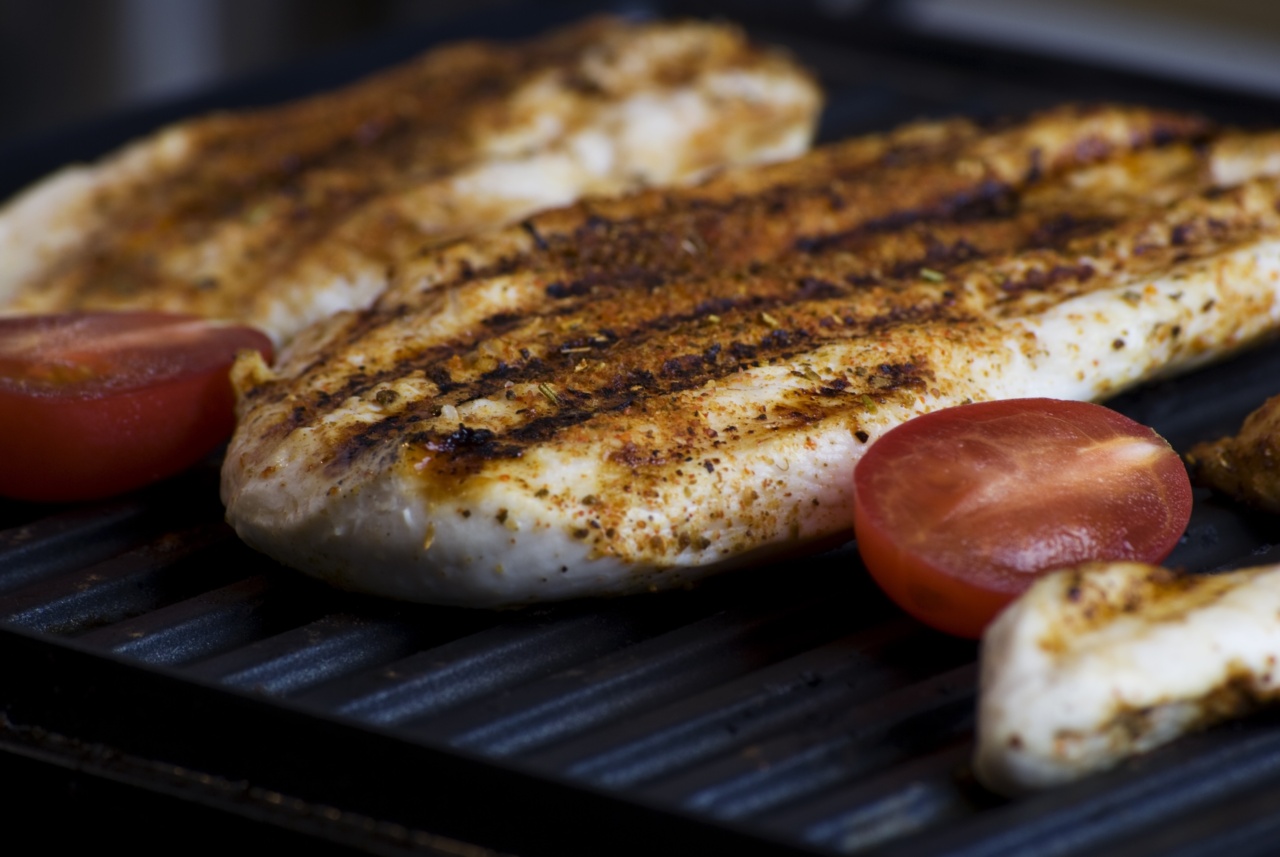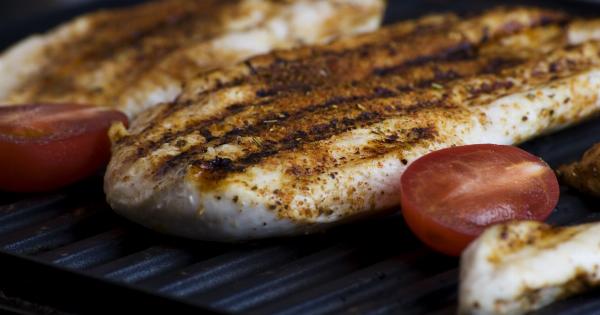Chicken and fish are popular choices for meals in many households, but improper cooking techniques can result in the formation of carcinogens. These are substances that have the potential to cause cancer in humans.
To avoid this, it’s important to cook chicken and fish correctly. Here are some of the most common cooking mistakes that can cause carcinogens in chicken and fish:.
1. Cooking at High Temperature
Cooking chicken and fish at high temperatures, such as grilling or pan-frying, can lead to the formation of carcinogens. This is because the high heat can cause a chemical reaction between the amino acids and creatine in the meat.
The result is the formation of a group of substances called heterocyclic amines (HCAs). HCAs have been linked to several types of cancers, including colon, stomach, and breast cancer.
2. Overcooking
Overcooking chicken and fish can also lead to the formation of carcinogens. When meat is cooked for too long, it can become charred or burnt.
This can result in the formation of polycyclic aromatic hydrocarbons (PAHs), which are another group of substances that have been linked to cancer. PAHs are formed when fats and juices from the meat drip onto the flames, causing smoke and soot to form. The smoke and soot can then adhere to the surface of the meat, leading to the formation of PAHs.
3. Not Trimming Fat
When cooking chicken or fish, it’s important to trim off any excess fat. This is because fat can drip onto the flames and cause smoke, which can lead to the formation of PAHs.
Also, the more fat there is on the meat, the higher the risk of HCAs forming when it is cooked at high temperatures.
4. Using the Wrong Oil
Sometimes, the type of oil you use when cooking chicken or fish can also affect the formation of carcinogens. Certain oils, such as vegetable, corn, and soybean oil, contain high levels of omega-6 fatty acids.
These fatty acids can promote inflammation in the body, which has been linked to cancer. Olive oil and canola oil are good alternatives, as they contain lower levels of omega-6 fatty acids.
5. Cooking Rare Meat
Eating rare or undercooked meat can be risky, as it can contain harmful bacteria such as salmonella and E. coli. While cooking meat until it is well-done can help kill these bacteria, it can also lead to the formation of carcinogens.
To reduce the risk of carcinogen formation, it’s recommended to cook chicken and fish until they are cooked through, but not overcooked.
6. Using Charcoal or Wood
Grilling chicken or fish on a charcoal or wood fire can add a nice smoky flavor, but it can also increase the risk of carcinogen formation.
This is because charcoal and wood can release substances that can stick to the surface of the meat, leading to the formation of HCAs and PAHs. Using a gas grill or an electric grill can help reduce this risk.
7. Adding Sugary Marinades
Sugary marinades can add a lot of flavor to chicken and fish, but they can also lead to the formation of carcinogens. When sugar is heated, it can break down and form a variety of substances, including acrylamide.
Acrylamide has been linked to cancer in animal studies, and while its effects on humans are still being studied, it’s best to avoid using sugary marinades.
8. Not Marinating
Marinating chicken and fish before cooking can help reduce the formation of carcinogens. This is because some marinades, such as those containing vinegar or citrus juice, can reduce the formation of HCAs.
Also, marinating meat can help keep it moist, which can reduce the risk of charring and the formation of PAHs.
9. Not Cleaning the Grill
Cleaning the grill after each use can help reduce the risk of carcinogen formation. When fats and juices from previous grilling sessions are left on the grill, they can burn and create smoke, leading to the formation of PAHs.
Using a wire brush to clean the grill after each use can help remove any leftover debris.
10. Using Aluminum Foil
Using aluminum foil to cook chicken or fish can also lead to the formation of carcinogens. This is because aluminum foil can react with acidic foods, such as lemon juice or tomatoes, and create aluminum salts.
These salts can then leach into the food and be ingested. While the effects of aluminum on the body are still being studied, it’s best to avoid using aluminum foil when cooking acidic foods.
Conclusion
Cooking chicken and fish correctly can help reduce the risk of carcinogen formation. By avoiding these common cooking mistakes, you can ensure that your meals are healthy and delicious.
Remember to cook meat until it is well-done but not overcooked, trim off any excess fat, and clean the grill after each use. These simple steps can go a long way in protecting your health.































